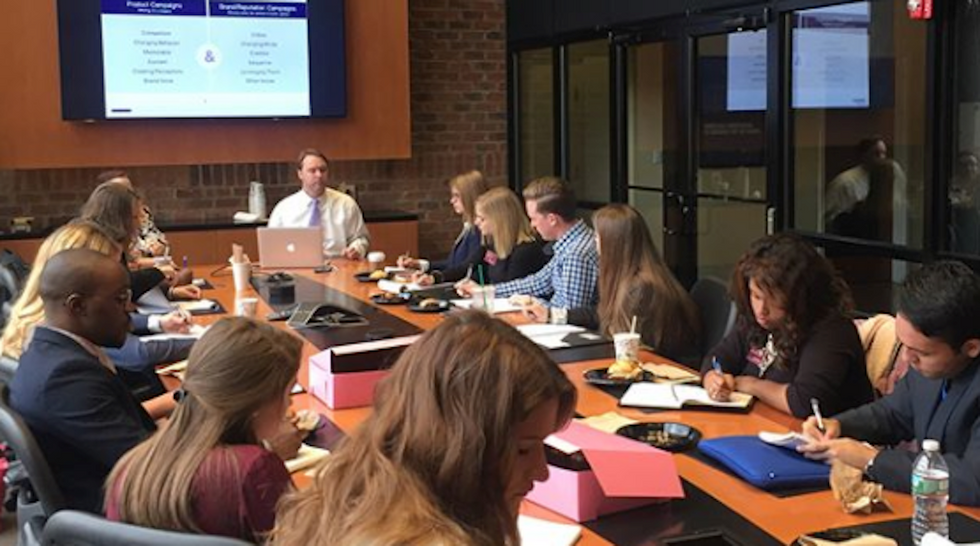I get it. When I say that I am studying communication, it doesn’t sound as impressive as someone who says they are studying molecular biology.
As a communication student, I don’t have to take a million different calculus courses or organic chemistry. I don’t have to attend three additional labs every week. I don’t have to worry about needing an absurdly high GPA to certify into my major.
That doesn’t mean that I couldn’t do it. I chose not to.
It is not that I wasn’t good at math or science. I genuinely enjoyed those subjects and the challenges they had to offer — I just didn’t see myself doing it for the rest of my life.
My skill set and my interests align with a career in communication, but that doesn’t make my degree or my time in university any less valuable.
As communication students, we do have challenging course material.
Often, when expressing worry or stress over my academics, I am met with comments like:
“Oh yeah, you should try being a [insert different major here] major. We have it the worst!" or “Oh come on, it is only Com!”
The truth is, communication, especially at Washington State University, is full of challenges. If you don’t believe me — ask someone about Com 300. We nurture a different set of skills, but they are still valuable.
In communication, writing is king. Your writing establishes your credibility. Learning how to write using associated press is not as easy as it sounds, and the rules are always changing. There is no room for mistakes in our work because it is sent out to the public.
Last semester, I failed a paper because of a missed apostrophe. Is that too harsh? I don’t think so. This is what we will be doing for a living, so we need to become professionals.
We need to know how to write, and we need to know how to conduct research. Research is a key to many branches of communication.
In public relations, both formal and informal research is conducted to inform strategic planning. We are required to study quantitative research methods and how they can be applied in our careers. We learn how to carry out a study and compile data. Then we learn how to take data, analyze it, and then turn that information into action.
We use our research to measure public attitude and predict reactions to content. We use critical thinking and our knowledge to ensure the message that a company is sending out is received as intended. We learn the pros and cons of all types of research, so we can judge which will be the best fit for our clients and their objectives.
We do much of the same things as students in the STEM field. It is just on different subject matter and has different applications
I repeat: I nurture a different set of skills, but they are still valuable.
I am not trying to prove that communication is king of all majors or fields to be working in, and I am not trying to downplay the hard work that students and professionals in the STEM fields do. What I am trying to make everyone see, is that every path has its merits and every path can cross at one point or another.
At the end of the day, we all need each other to do our future jobs. Who knows, maybe someone like me could help you find the best way to present your future findings or will be reporting on it.



 StableDiffusion
StableDiffusion StableDiffusion
StableDiffusion StableDiffusion
StableDiffusion Photo by
Photo by  Photo by
Photo by  Photo by
Photo by 
 Photo by
Photo by  Photo by
Photo by  Photo by
Photo by  Photo by
Photo by  Photo by
Photo by 












